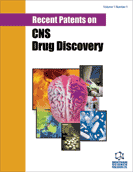Abstract
In recent years, one of the major advances in terms of our understanding of the pathology underlying many neurological conditions has been the realisation that inflammation may play a major role in many acute and chronic conditions. Inflammation is not only involved in acute CNS conditions, such as stroke and traumatic injury, but it is also a central factor in chronic and neurodegenerative conditions such as Alzheimers disease, Parkinsons disease and multiple sclerosis. There are some key differences between inflammatory processes within the CNS (neuroinflammation) and peripheral inflammation, partly due to the natural compartmentation of the brain by the blood-brain barrier. As a result of these differences, the classical anti-inflammatory agents (steroids and NSAIDs) have not played a major role in the management of CNS inflammatory conditions. In order to address this clinical need, there is significant interest in developing novel anti-inflammatory agents that may help prevent or ameliorate CNS inflammation. In this review, the authors focus on disclosures from the patent literature to give a broad overview of the different approaches that are being taken to try and develop more effective and selective anti-inflammatory agents to manage acute and chronic inflammation in the CNS. A variety of approaches are discussed including modulating the activity of various inflammatory mediators such as cytokines, chemokines and kinins, targeting toll-like receptors as a possible therapeutic intervention, and novel approaches to managing the actions of eicosanoids in neuroinflammation.
Keywords: Brain injury, neuroinflammation, cytokines, chemokines, bradykinin, tachykinins
 14
14

